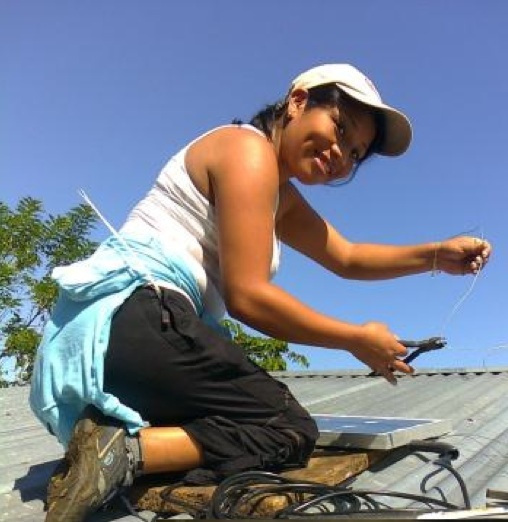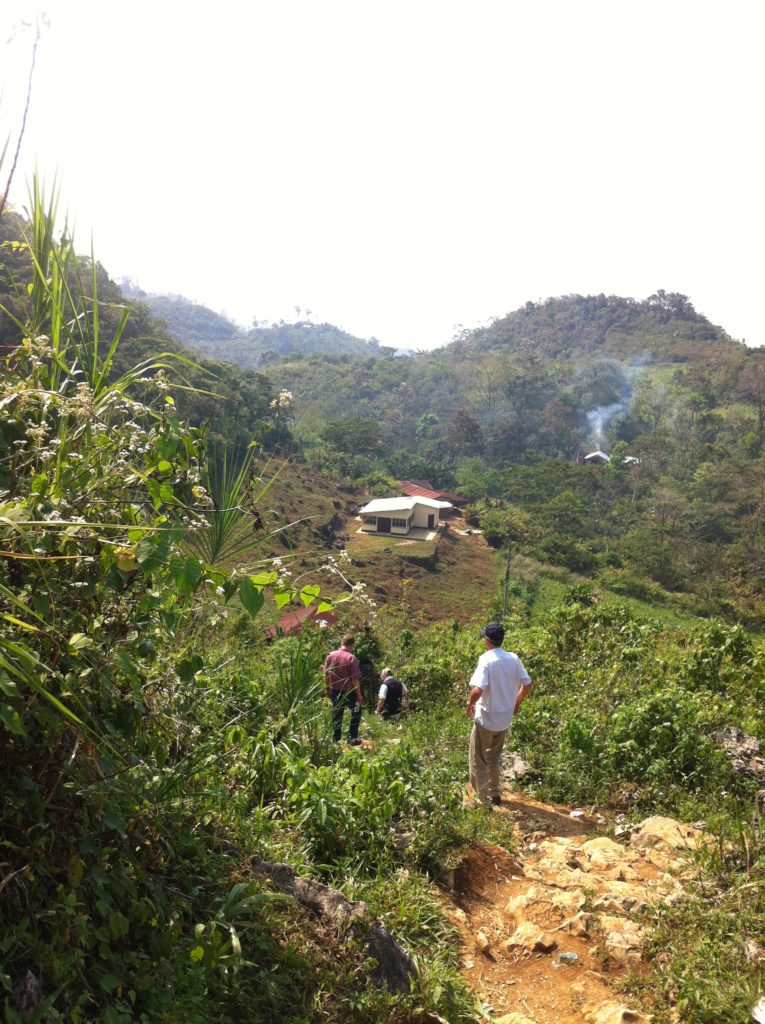November 10th, 2014 | By Eric Peterson
TulaSalud Tech
Karla Pop Molina. Karla was born in Cobán, Alta Verapaz. Her family speaks Queq'chi, so she learned it as a child. She studied accounting and at the College of Social and Legal Sciences. In the course of those studies she did an internship in a health institution and after that worked Ministry of Health as an assistant in the nursing unit. There she gained experience screening administrative data in the communities covered by the various departments of the Ministry of Health. This experience helped her find the human side of community work, which led to her joining the TulaSalud team, where her knowledge in the area of technology has grown.
 At TulaSalud Karla conducts training of personnel and partners for the diverse programs of TulaSalud and other institutions. For that she develops educational materials using information and communications technologies. Training is done in groups in the larger communities, for which the materials developed in local languages. Following these training sessions, Karla offers reinforcement and problem solving by telephone to collaborators in their local language in disadvantaged areas of Alta Verapaz. She also travels to those communities to support training sessions, resolve problems, install equipment and resolve diverse technical problems.
At TulaSalud Karla conducts training of personnel and partners for the diverse programs of TulaSalud and other institutions. For that she develops educational materials using information and communications technologies. Training is done in groups in the larger communities, for which the materials developed in local languages. Following these training sessions, Karla offers reinforcement and problem solving by telephone to collaborators in their local language in disadvantaged areas of Alta Verapaz. She also travels to those communities to support training sessions, resolve problems, install equipment and resolve diverse technical problems.
Karla recalls an occasion when she was visiting a remote community doing training with TulaSalud. A man from the community came to ask one of the local community health workers (CHWs) to come and examine his wife who was in labor. The district nurse was there, so she offered to visit the lady instead, and returned in a few minutes. At the end of the meeting the man returned and again urged the CHW to come back with him to see his wife. The CHW went with him for assurance. In the end, the CHW returned, having assured the man that it was not necessary to refer his wife, and a healthy birth ensued. Karla noted the great trust the people have for their local CHWs, that even when there are people available who have more training, the CHWs have a major role because they are known the to community, speak the local language and know the local customs. It tells us that the key to the program is that human element, CHWs who are dedicated to the welfare of their communities.
